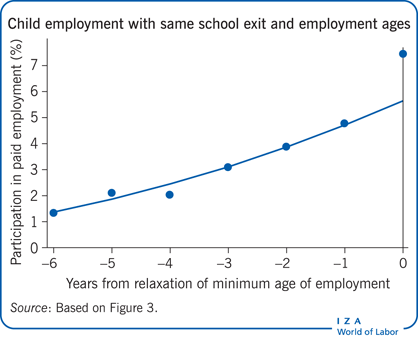Elevator pitch
Regulation of the minimum age of employment is the dominant tool used to combat child labor globally. If enforced, these regulations can change the types of work in which children participate, but minimum age regulations are not a useful tool to promote education. Despite their nearly universal adoption, recent research for 59 developing countries finds little evidence that these regulations influence child time allocation in a meaningful way. Going forward, coordinating compulsory schooling laws and minimum age of employment regulations may help maximize the joint influence of these regulations on child time allocation, but these regulations should not be the focus of the global fight against child labor.

Key findings
Pros
If enforced, minimum age regulation can be a useful tool to change how children work.
Regulation is strongest when coordinated with compulsory schooling laws.
Reductions in child labor can be accomplished with minimal impact on family living standards.
Coerced and forced child laborers, although a small share of working children, may benefit the most from minimum age of employment laws.
Minimum age regulation may establish new societal norms over time and may provide tools for the legal system to go after gross violators.
Cons
Minimum age regulation is not a tool to promote education.
Minimum age regulation can separate children from their parents in the labor market, leaving children more vulnerable.
Most child laborers are involved in activities that are outside the scope of minimum age regulation.
There is little evidence that minimum age regulations are being enforced.
The adoption of minimum age regulation appears to be motivated by global political concerns.